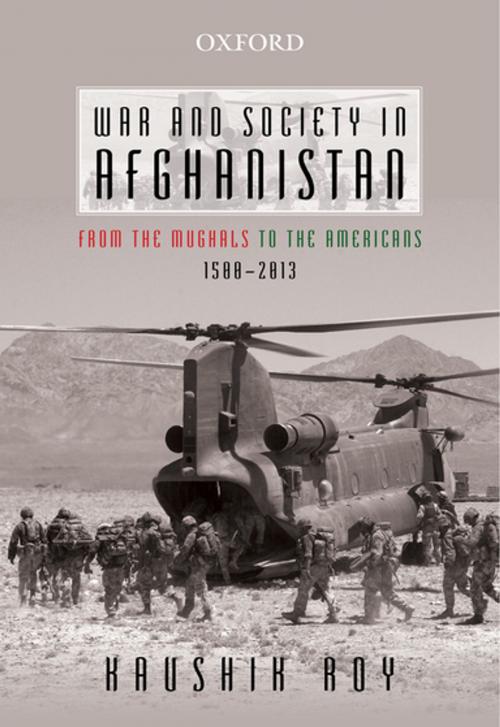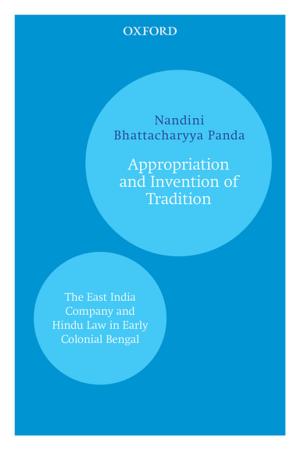War and Society in Afghanistan
From the Mughals to the Americans, 1500–2013
Nonfiction, History, Asian, Asia, Social & Cultural Studies, Political Science, International, International Relations| Author: | Kaushik Roy | ISBN: | 9780199089444 |
| Publisher: | OUP India | Publication: | February 12, 2015 |
| Imprint: | OUP India | Language: | English |
| Author: | Kaushik Roy |
| ISBN: | 9780199089444 |
| Publisher: | OUP India |
| Publication: | February 12, 2015 |
| Imprint: | OUP India |
| Language: | English |
This monograph analyses the rhythms of war and the geopolitical significance of Afghanistan with a focus on the interrelated concepts of weak/rentier state, great power rivalry, and counter-insurgency. It analyses why the Mughals, the British, the Soviets, and the Americans won the conventional wars in Afghanistan but were defeated in the unconventional ones. It takes a comprehensive view of the history of the region and provides a political and military narrative of conventional and unconventional war in Afghanistan during the last five centuries. It, therefore, covers wide ranging aspects such as empire building and military operations in Afghanistan in the pre-modern period, regular and irregular warfare in Afghanistan during the British era, the Russian intervention and the emergence of the fragile 'rentier state' after the world war, and the American and NATO activities and the nature of on-going war in light of the recent debates on the changing character of war in the twenty-first century. With a special emphasis on ecology, terrain, and logistics, this book explores the trajectory of state building and contextualizes the Afghan 'problem' as part of the wider struggle among the great powers for controlling the 'heart' of Eurasia.
This monograph analyses the rhythms of war and the geopolitical significance of Afghanistan with a focus on the interrelated concepts of weak/rentier state, great power rivalry, and counter-insurgency. It analyses why the Mughals, the British, the Soviets, and the Americans won the conventional wars in Afghanistan but were defeated in the unconventional ones. It takes a comprehensive view of the history of the region and provides a political and military narrative of conventional and unconventional war in Afghanistan during the last five centuries. It, therefore, covers wide ranging aspects such as empire building and military operations in Afghanistan in the pre-modern period, regular and irregular warfare in Afghanistan during the British era, the Russian intervention and the emergence of the fragile 'rentier state' after the world war, and the American and NATO activities and the nature of on-going war in light of the recent debates on the changing character of war in the twenty-first century. With a special emphasis on ecology, terrain, and logistics, this book explores the trajectory of state building and contextualizes the Afghan 'problem' as part of the wider struggle among the great powers for controlling the 'heart' of Eurasia.















